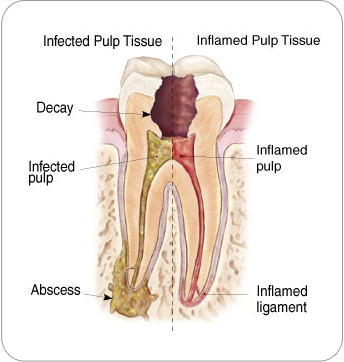Why does a tooth need to be extracted?
If a tooth is cracked, split or fractured it will not heal, unlike a broken bone which will heal.
What commonly causes a tooth to crack, split or fracture?
Some examples may be chewing on hard objects such as ice, un-popped popcorn kernels or pens. Clenching or grinding
one’s teeth can cause these problems as well.
What happens if the tooth that is cracked, split or fractured is left untreated?
The tooth can progressively fail and the surrounding bone and tissue will likely become infected. Once this happens, the tooth must be removed.

Can a failing tooth be saved, as opposed to being extracted?
If the dentist can get to the problem soon enough, there is a chance the tooth may be saved through various dental procedures.
What is involved if the tooth must be extracted?
Under most circumstances, the extraction can be done in the comfort of the nursing facility. If the resident is on blood thinners, an extraction will need to be delayed for a certain number of days before the extraction can occur. Some residents will need to be given antibiotics. The dentist will typically numb the area with a local anesthetic prior to the extraction.
What needs to be done once the tooth is extracted?
A blood clot typically forms in the socket and the dentist will put a gauze pad in the socket for the resident to bite down on. Sometimes the dentist will need to place a few self-dissolving stitches to close the gum edges over the extraction site.
What if the resident’s immune system is compromised due to receiving chemotherapy or having an organ transplant?
The risk of infection for a particular tooth may be reason to extract it.
